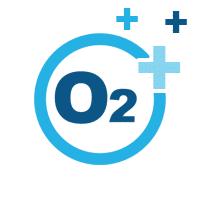Brain Damage
Brain damage is an injury that causes the deterioration or destruction of brain cells. Brain damage includes both Traumatic Brain Injury (TBI), caused by an external force, and Acquired Brain Injury (ABI), occurring at the cellular level. The severity of damage can vary based on they type of injury, but can range from headaches, confusion, and memory problems, to more severe cognitive, behavioral, and physical disabilities.
Benefits of Hyperbaric Oxygen Therapy for Brain Damage:

Increases Amount of Oxygen in the Blood
Stimulates development of new blood vessels from pre-existing vessels as well as the natural development of new blood vessels.

Reduces Inflammation & Swelling
Suppresses the cellular activity of the immune system which triggers swelling when an injury or damage to the body occurs. While this reaction is meant to start healing and protect from injury it can result in secondary injury, pain, and prolonged recovery time.

Preserves, Repairs, & Enhances Cellular Functions
Boosts cellular metabolism, promotes rapid cell reproduction, and enhances collagen synthesis. Collagen is a protein in connective tissues like skin.
Key Research on Hyperbaric Oxygen Therapy for Brain Damage
Recent News on Hyperbaric Oxygen Therapy for Brain Damage
The VA Should Consider Hyperbaric Oxygen as a Worthwhile Treatment
From Military Times Commentary by Tommy Tuberville Army Capt. Kyle Salik is the first patient to receive oxygen therapy at the new Undersea & Hyperbaric Medicine Clinic at Brooke Army Medical Center June 20, 2017. (Robert Shields/Army) The COVID-19 pandemic...
Healing Arizona Veterans sponsors hyperbaric oxygen therapy for eligible vets
After being knocked unconscious four times due to Marines deployment to Iraq and Afghanistan, Armando was living life with a traumatic brain injury and post-traumatic stress disorder. His diagnosis of post-concussion syndrome, and an autoimmune disease from toxic...
Veterans with traumatic brain injury needed for hyperbaric oxygen therapy research
INDIANAPOLIS (WISHTV) — Indiana has put $1 million toward hyperbaric oxygen therapy research. Indiana was the first state to use public funds for what is considered experimental, or off-label, treatment of traumatic brain injuries. The program was just getting started...
Related Indications
Schedule a Consultation
Additional Research
Linear analysis of heart rate variability in post-concussive syndrome.
Heart rate variability (HRV) represents measurable output of coordinated structural and functional systems within the body and brain. Both mild traumatic brain injury (mTBI) and HRV are modulated by changes in autonomic nervous system function. We present baseline HRV results from an ongoing mTBI clinical trial. HRV was assessed via 24-hour ambulatory electrocardiography; recordings were segmented by physiological state (sleep, wakefulness, exercise, standing still). Time, frequency, and spatial domain measures were summarized and compared with symptoms, sleep quality, and neurological examination. Median low frequency/high frequency (LF/HF) ratio exceeded 1.0 across segments, indicating prevalence of sympathetic modulation. Abnormal Sharpened Romberg Test was associated with 29% LF/HF decrease (95% CI [2.1, 47.7], p=0.04); pathological nystagmus associated with decreased standard deviation of electrocardiogram R-R interval (SDNN) index (25% decrease, 95% CI [0.8, 43.4], p=0.04). Increased sympathetic modulation was associated with increased anger scores (19% LF/HF increase with 5-point State Trait Anger Expression Inventory-2 trait anger increase (95% CI [1.2, 39.1], p=0.04)). A 13% HF increase (95% CI [2.1, 25.7], p=0.02) was observed with increased Pittsburgh Sleep Quality Index scores. These results support autonomic nervous system dysfunction in service members after mTBI.
TBI study questioned: Dr. Weaver response.
Abstract: Weaver, Lindblad, Wilson, Churchill, Deru, , , , (). TBI study questioned: Dr. Weaver response. Undersea & hyperbaric medicine : journal of the Undersea and Hyperbaric Medical Society, Inc, ;44(1):82-85. https://www.ncbi.nlm.nih.gov/pubmed/28768093
Sleep assessments for a mild traumatic brain injury trial in a military population.
Baseline sleep characteristics were explored for 71 U.S. military service members with mild traumatic brain injury (mTBI) enrolled in a post-concussive syndrome clinical trial. The Pittsburgh Sleep Quality Index (PSQI), sleep diary, several disorder-specific questionnaires, actigraphy and polysomnographic nap were collected. Almost all (97%) reported ongoing sleep problems. The mean global PSQI score was 13.5 (SD=3.8) and 87% met insomnia criteria. Sleep maintenance efficiency was 79.1% for PSQI, 82.7% for sleep diary and 90.5% for actigraphy; total sleep time was 288, 302 and 400 minutes, respectively. There was no correlation between actigraphy and subjective questionnaires. Overall, 70% met hypersomnia conditions, 70% were at high risk for obstructive sleep apnea (OSA), 32% were symptomatic for restless legs syndrome, and 6% reported cataplexy. Nearly half (44%) reported coexisting insomnia, hypersomnia and high OSA risk. Participants with post-traumatic stress disorder (PTSD) had higher PSQI scores and increased OSA risk. Older participants and those with higher aggression, anxiety or depression also had increased OSA risk. The results confirm poor sleep quality in mTBI with insomnia, hypersomnia, and OSA risk higher than previously reported, and imply sleep disorders in mTBI may be underdiagnosed or exacerbated by comorbid PTSD.
